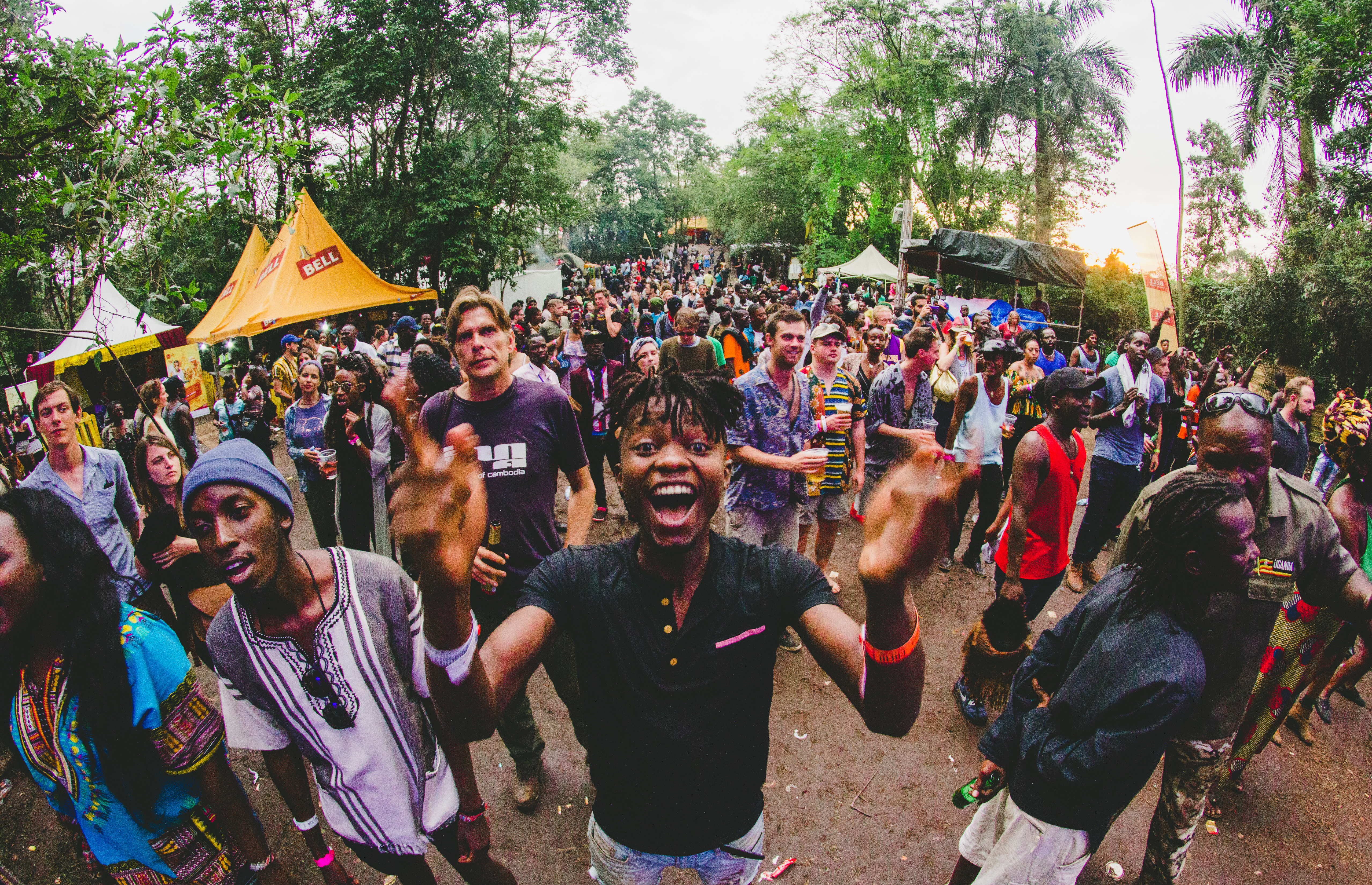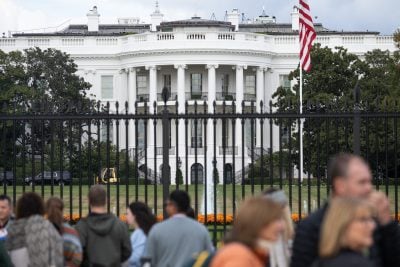Each year, at the MTN Bushfire Festival, a multi-generational crowd of 20,000 people “bring their fire” to the scenic Malkerns Valley of Eswatini, to experience an eclectic pan-African and international line-up of live music, theatre, poetry, film, dance, and visual arts.
The festival model is being replicated across the continent. South Africa is home to internationally known celebrations such as the National Arts Festival and the Cape Town Jazz festival which attract thousands of enthusiasts every year.
In East and West Africa, festivals in the economic giants of Kenya and Nigeria cater for a rising middle class who are prepared to spend an increasing percentage of their disposable income on events.
Meanwhile, North African countries such as Morocco and Tunisia are being marketed as key music destinations, attracting wealthy European tourists and government patronage. And outside the obvious locations, successful flagship events take place in the likes of Zimbabwe, Eswatini and Zanzibar.
“The African continent hosts hundreds of annual festivals and cultural celebrations, though only a small minority target international audiences,” says Yusuf Mahmoud, Sauti za Busara festival director and chair of Music in Africa Foundation.
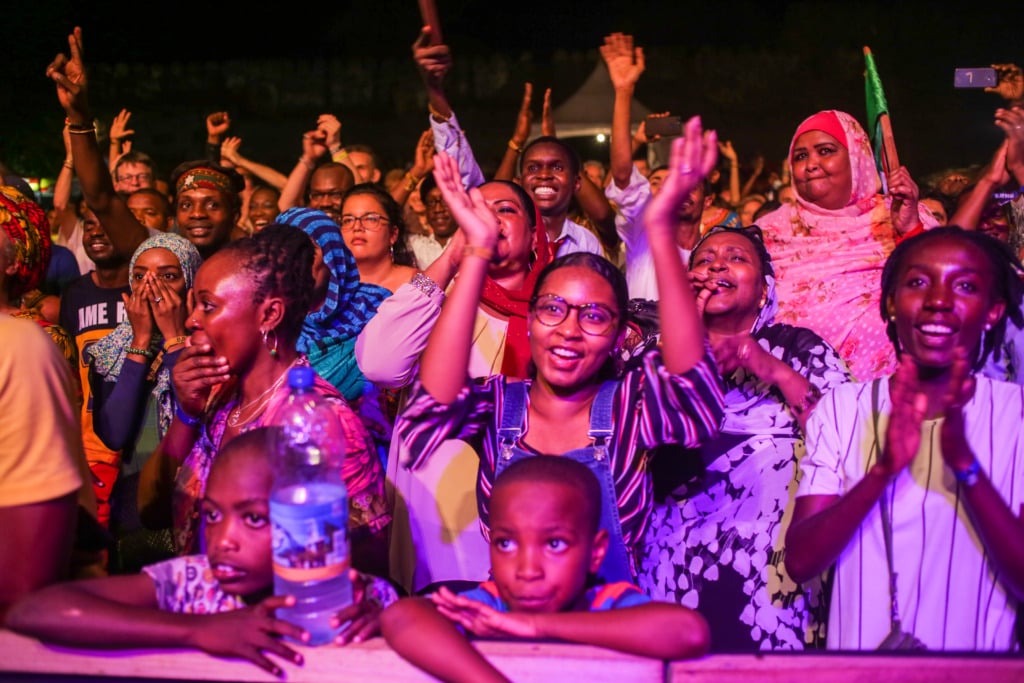
The sector is increasingly attracting the interest of corporate sponsors, including telecoms and alcohol brands who are keen to market their products and services to a younger audience. The MTN Bushfire Festival, which has been ongoing for 15 years in Eswatini, is headlined by the South African telco brand but includes partnerships with up to 70 local and international sponsors.
As Africa emerges from the pandemic and customers return to mass events, organisers say that sponsors are flocking back to the sector.
“After two years’ hiatus, there was a tremendous appetite from all stakeholders to come back. We managed to sell strong brands and we have repeat sponsors buying,” says Jiggs Thorne, director of the festival.

Costs weigh heavily on festival promoters
While successful examples can be found across the continent, the industry remains an upstart compared to its established peers in Europe and North America.
The costs of establishing large events and the difficulties of attracting mass audiences in emerging markets still weigh heavily on promoters.
In many cases, single artist concerts and tours are more profitable given smaller venue, security, and catering costs. Coordinating the transportation of dozens of artists in countries where infrastructure can be rudimentary also remains a major challenge and financial burden.
“A major challenge we all face is the high cost of flights. Mobility funding is urgently required, as well as more public-private partnerships,” says Mahmoud.
For this year’s edition of the MTN Bushfire festival, more money was spent on security and logistics.
“As the festival grows in numbers, so do the risks. Managing traffic flows alongside the new covid protocols implies an organised and responsive team of medics, fire, and security,” says Thorne.
Regulations concerning outdoor events in some African countries do not meet the same standards as in Europe or North America. African promoters often have to self-regulate on security matters to avoid potential incidents which could hurt a festival’s reputation.

The challenge of making a profit
Another constraint on the growth of regional festivals is the limited profitability of initial festival instalments. According to promoters, music festivals have high running costs and typically only start making profits after three or four years.
“In our case, profits will hopefully come for the sixth edition,” says Derek Debru, co-founder of the Nyege Nyege festival, the next edition of which will take place in September on the shores of the Nile River in Uganda.
“You need to be strong financially to suffer the loss at the beginning. Some festivals start the first year with huge profit ambitions, but it unfortunately reflects on the quality of the event,” says Debru.
The grants and loans that would usually help tide over events in Europe and the US in the difficult early years are much less common in Africa’s emerging festival industry.
“When you are in a European country, where the festival culture is prominent, you can get a variety of subventions which will help you survive the first years,” adds Benjamin Lebrave, founder of the Accra-based music label Akwaaba Music.
Of course, political and economic risk also mitigates against the success of events in Africa.
Mali’s Festival au Désert in Timbuktu was long considered a success for showcasing traditional Tuareg music to an international audience but was cancelled in 2017 and hasn’t taken place since as a result of security concerns relating to Islamist militancy in the country.
Catering for different tastes
With such a diversity of events catering for different tastes and interests across dozens of markets, there is not likely to be a one-size-fits-all approach to the implementation of a flourishing music festival.
“No two festivals are the same. Each one is different, according to its programming focus, audience reach, geographic and cultural context,” says Yusuf Mahmoud.
Many large-scale festivals follow the European and US model of paying large amounts to attract internationally recognised music talent, such as the Afro Nation Festival, produced by UK-based entertainment company Event Horizon, which made its debut in Ghana in 2019 with superstars Stonebwoy, Wizkid, Davido, Shatta Wale and Burna Boy among its headliners.
Showcasing acts
The founders of the Nyege Nyege festival in Uganda have taken a different approach.
Nyege Nyege first established itself as a music label at the heart of a blossoming music scene in Uganda’s capital city Kampala.
The first edition of the festival in 2015 had no headliners, but a few local artists playing a wide variety of musical styles on historical instruments and innovative machines such as Africa’s first DIY modular synthesiser made by Ugandan artist and technology freak Afrorack. Nyege Nyege made the bet to promote the experience rather than the line-up.
“Our strategy, because the music is integrated into a wider project, is to showcase lesser-known acts,” explains Derek Debru.
“In the beginning, we had a hard time convincing the government that the festival could boost the local economy: How are 500 people dancing in a forest contributing to anything?” says Debru.
However, over the years, Nyege Nyege became an essential part of the Kampala music scene and gained a considerable international reputation without booking any major stars.
“This year, for the first time, we have launched the sixth edition without announcing the line-up of artists and we never sold that many tickets,” says Debru.

Programming local artists
Nyege Nyege is certainly not the first and only music festival in Africa which plays on the authenticity of African music, food, visuals, and activities to create a unique experience and attract an international audience.
Sauti za Busara makes sure local musicians are the backbone of the celebration by programming at least 50% Tanzanian artists.
Giving local artists a global exposure can, in return, serve the interest of the festival organisers. Events which highlight local talent and authentic musical styles are more likely to receive government and international donor support, and may attract foreign tourists keen for a different experience from the European and US festival circuits.
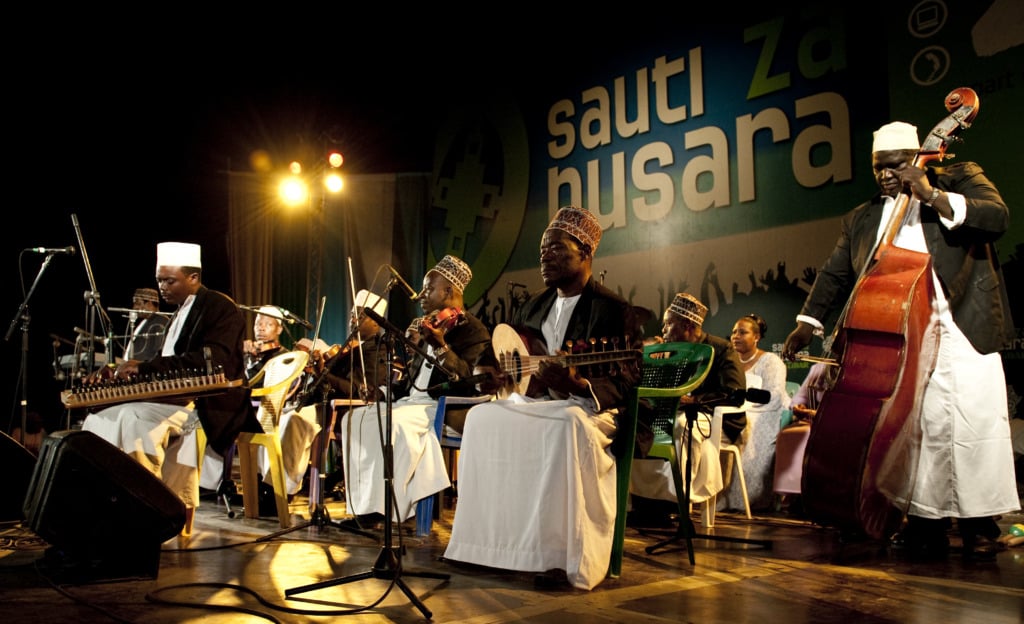
International organisations such as the Alliance Française, Goethe-Institut and British Council, important promoters of live events in Africa, also offer support for authentic cultural events. For instance, in 2019, the Norwegian embassy in Tanzania announced it would support the core running costs of the Sauti za Busara festival in Zanzibar, to the tune of $342,000, until March 2022.
Supporting emerging acts can also build credibility and attract the stars of the future by supporting their rise to the top.
“We always hope that, later, our artists will blow up and that we will get credited for having booked them at an early stage of their careers,” says Debru.
It appears to be working. Nyege Nyege’s musicians play more than 200 shows across the globe every year and are growing in popularity.
“When people see our line-up, they see big names, but they are all artists from our roster,” says Debru.
Economic impact
As well as providing income streams for artists and promoters, festival organisers also point to the benefits that can accrue to the wider economy from events hosting.
Local restaurants and businesses benefit from a sudden demand created by a large crowd of spectators, with many establishing themselves as vendors to cater to the event. Hotels and airlines can also expect a boost.
The Gnaoua Festival in Morocco, which welcomed more than 300,000 people in 2019, has had a significant economic impact on the port city of Essaouira. Since its creation in 1998, the city has tripled its hotel capacity, going from 145,000 to nearly 500,000 nights per year, according to Moroccan consulting firm Valyans.
The MTN Bushfire festival creates every year between 900 and 1200 jobs and generates approximatively $3.4m for the broader Eswatini economy, according to Thorne.
“We give a lot of vending spaces for free. If you want to come to sell any products, from sunglasses to ice creams, you are able to do so by simply purchasing a ticket,” says Debru.
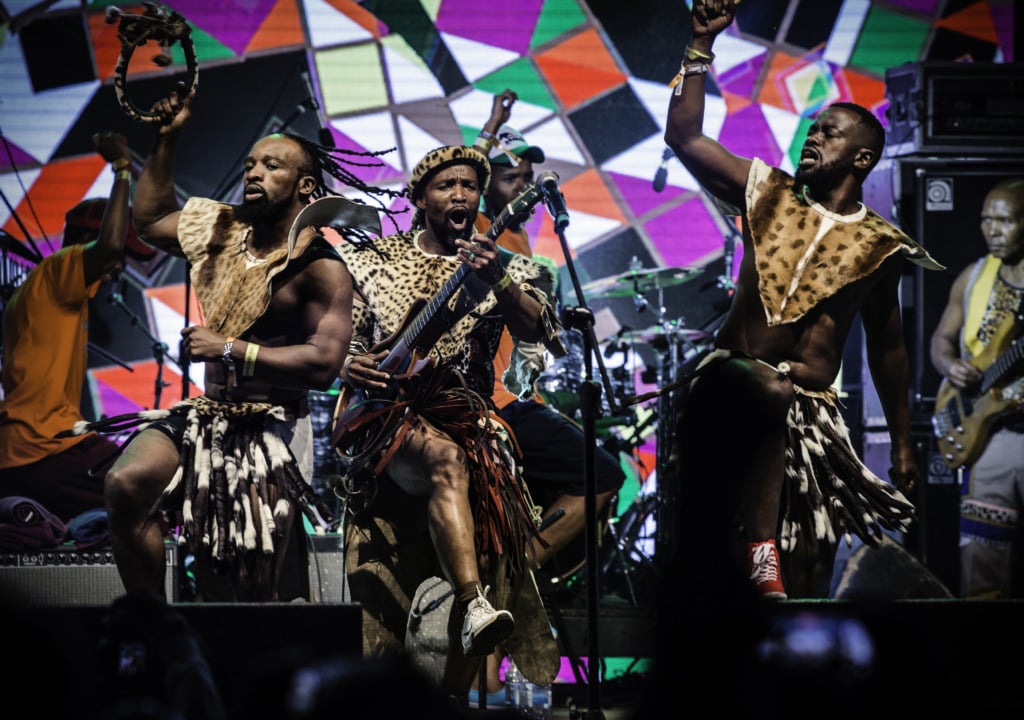
Transfer of skills
Festivals have other important outcomes such as the transfer of skills and know-how, with potential repercussions on different sectors of the economy.
“By bringing key service providers outside of Eswatini, for example from South Africa, our ultimate goal is to make sure we are developing local skill sets,” says Jiggs Thorne.
A critical point for a festival to last is its ability to be more than the entertainment it offers by playing a valuable role in the social development of a country.
For instance, MTN Bushfire festival has worked towards firmly developing a green footprint. In 2019, over 50% of waste generated during the two-day event was recycled, and a ban on single-use plastic was progressively put in place.
Capitalising on heritage
But despite the positive economic spill over and soft power impact of hosting events, many festivals still lack financial support from governments, and the Covid-19 period has been particularly challenging.
For many African countries, festivals can play a role in preserving, but also reviving, the continent’s inheritance of ancient music. The challenge, for music festival promoters but also governments is to capitalise on this heritage while making it profitable.
Want to continue reading? Subscribe today.
You've read all your free articles for this month! Subscribe now to enjoy full access to our content.
Digital Monthly
£8.00 / month
Receive full unlimited access to our articles, opinions, podcasts and more.
Digital Yearly
£70.00 / year
Our best value offer - save £26 and gain access to all of our digital content for an entire year!
 Sign in with Google
Sign in with Google 